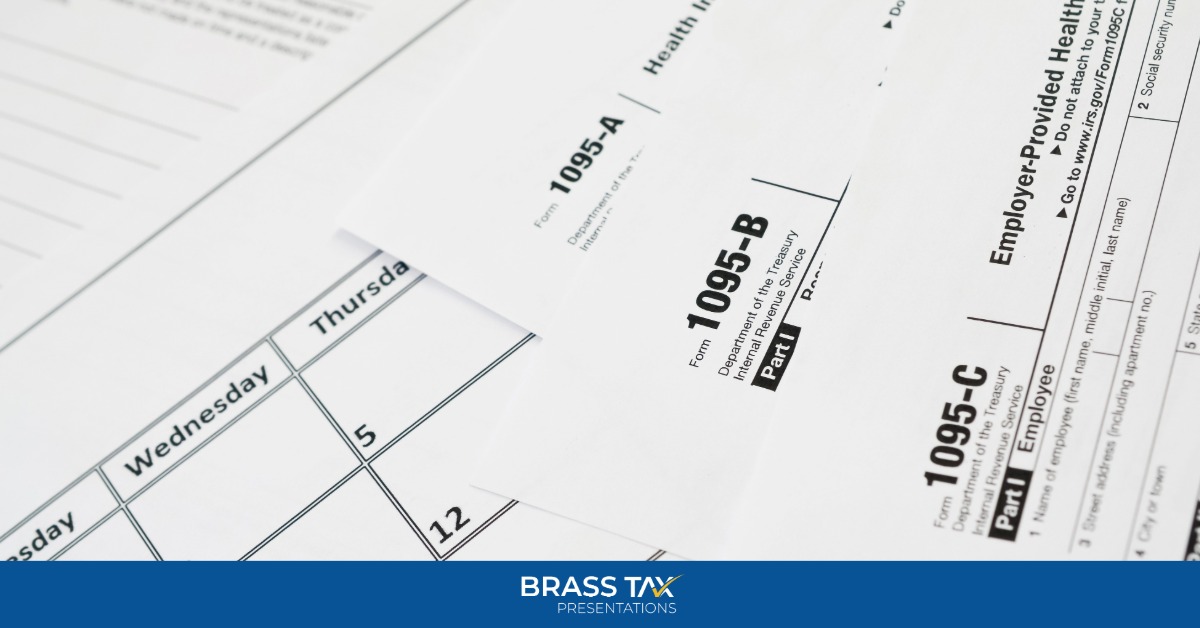Ask Us Anything
Dear Brass Tax Presentations,
I have an RDP who is self-employed. She has a plan under Covered California that only covers her RDP, not herself. Does the Federal allow her to claim the SEHI deduction for the premiums paid for her RDP? Should I assign the 1095A to her RDP on his return?
As additional information, the RDP on Covered California has negative income from a partnership. Would that allow the RDP, who has the Covered California plan, to treat her partner as a dependent for SEHI?
Thank you for your help on this issue.

From Brass Tax Presentations
I’m going to handle your questions one at a time.
I have an RDP who is self-employed. She has a plan under Covered California that only covers her RDP not herself. Does the Federal allow her to claim the SEHI deduction for the premiums paid for her RDP? Should I assign the 1095A to her RDP on his return?
You can only claim the Self-Employed Health Insurance (SEHI) deduction on health premiums for the taxpayer, their spouse, dependent, or a child who hasn’t reached age 27. An RDP is not a spouse. No SEHI deduction on those premiums.
What if the RDP on Covered California has negative income from a partnership? Would that allow the RDP, who has the Covered California plan, to treat her partner as a dependent for SEHI?
With regard to your question about assigning the premiums from the APTC to the RDP, I think you might be missing something in your thinking here… California is a community property state and RDPs have the same rights in the state as married couples. So for federal tax purposes, you have to split their community income and make each person pay tax on their half. I don’t have enough information to be able to tell you if any of the income is separate, but I bet it’s all or mostly community, which means their income will be equivalent so allocating probably won’t help you.
I see what you’re trying to do here. If California weren’t a community property state, this would be a reasonable option.. but again, because the community income has to be split, I would bet it puts the RDP over $4,700 of gross income for 2023. The only caveat would be if, after the community income split, the partnership loss wiped out all of the income on the RDP return. According to IRS guidance, partnership income is not community (but that’s just in a publication and not in any actual authority).
